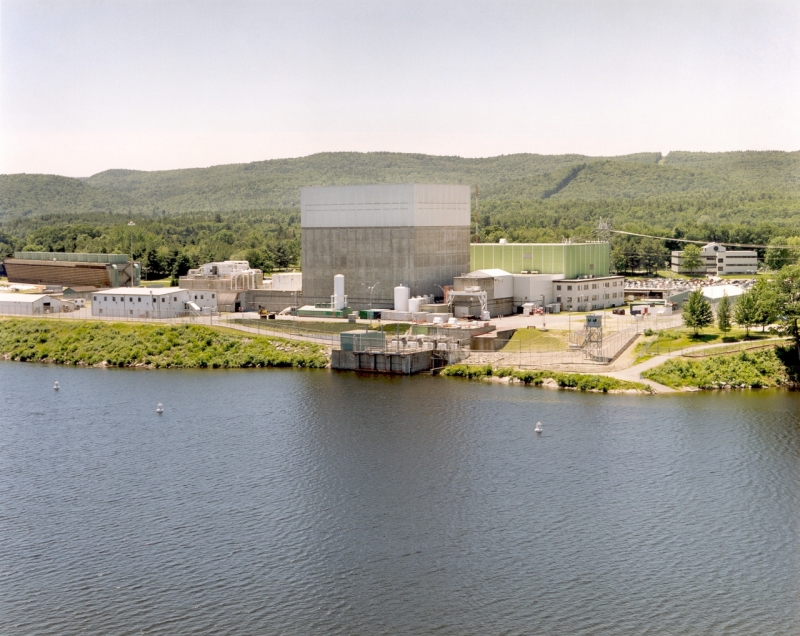The COVID-19 pandemic is one of the deadliest outbreaks in the last century, killing over one million people since early January. Nearly fifty million people have contracted the virus globally, and case counts are rising. Over 230,000 people have died in the United States alone. The US is home to less than five percent of the world’s population but has accounted for nearly twenty percent of global coronavirus deaths.
The US government’s abysmal response to the pandemic has largely contributed to the country’s high case numbers and deaths. Donald Trump knew about the severity of COVID-19 back in February but nonetheless downplayed the virus to avoid “a panic.”
But Trump didn’t just downplay the virus—he actively opposed measures that would have slowed its spread.
While other countries mobilized a federal response to the disease, the Trump administration took little action, leaving the response to the states. Lockdowns, mask mandates, social distancing guidelines, restaurant and bar closures, suspension of large gatherings, and other safety measures varied by state. It wasn’t until mid-March that Trump declared a nationwide state of emergency. But by then, a number of states had declared one themselves.
Trump called the criticisms he received a Democratic “hoax” to disrupt his presidency. In April, when Michigan, Minnesota, and Virginia imposed stay-at-home orders, Trump tweeted: “LIBERATE MINNESOTA!” and added “LIBERATE MICHIGAN!” a moment later. He then tweeted: “LIBERATE VIRGINIA, and save your great 2nd Amendment. It is under siege!” A few weeks after these tweets, maskless armed demonstrators entered the Michigan state house to protest the stay-at-home order.
Trump and COVID-19 deniers weren’t just angry about stay-at-home orders––they also criticized mask mandates implemented to slow the spread of COVID-19. While scientists initially did not recommend people wear masks, that guidance stemmed from uncertainty on how effective face coverings would be at preventing the virus’s spread. Once these experts reached a consensus that masks are effective, they adjusted guidelines to encourage their use. The Director of the Centers for Disease Control and Prevention noted that universal mask wearing alone could inhibit COVID-19 more effectively than a vaccine.
Following scientific advice, many states enforced mask mandates in public spaces. But these mandates varied—one study found that in Republican-led states, mask mandates were delayed by an average of nearly a month. As of November 2, thirty-three states, Washington, DC, and Puerto Rico required people to wear face coverings in public. Only nine of the twenty-six states with Republican governors had mask mandates, but every state with a Democratic governor did.
Republican state officials’ reluctance to enforce mask-wearing is likely a result of conservatives’ broader dislike for what they view as an encroachment of civil liberties. For months, Republican politicians and conservative media outlets mocked mask use.
Back in March, Representative Matt Gaetz donned a gas mask on the House floor to ridicule face coverings. Even after more than 200,000 people died, Tucker Carlson still referred to mask-wearing as “cult” activity. Trump didn’t wear a mask publicly until July 12—several months after many states imposed mask mandates. Trump has since adjusted his position—at the first presidential debate, he said “masks are okay” and that he will wear a mask when he thinks it’s necessary. He then mocked Joe Biden for wearing “the biggest mask” he’s ever seen.
Trump has personal experience with COVID-19. He, the First Lady, members of Congress, and several others tested positive after a superspreader event in the Rose Garden where maskless guests crowded together. Even after three days of treatment at Walter Reed Medical Center for reportedly severe symptoms, Trump told the American people that they shouldn’t be afraid of the virus.
Much of Trump’s campaign strategy hinged on having a coronavirus vaccine ready for distribution by the end of the year—but this timeline would be faster than any vaccine development ever. And American distrust in the vaccine is growing. Only fifty percent of Americans said that they would take a COVID-19 vaccine if it were available now. In August, a majority—72 percent of Republicans and 82 percent of Democrats—said that they believe politics, not science, is driving vaccine development.
At the 2020 vice presidential debate, Kamala Harris said that she would trust a vaccine if it were approved by public health professionals. In response, Mike Pence told her to “stop playing politics with people’s lives.”
The politicization of vaccine development—specifically Trump’s claim about its readiness—has led Americans to distrust the very idea of a vaccine. And the politicization of COVID-19 has resulted in thousands of deaths that likely would have been prevented if Trump and Republicans had simply advocated for masks earlier in the year.
But the politicization of science doesn’t just apply to actions like wearing a mask or getting a vaccine. It’s also a threat on a much larger, more existential scale. Scientific belief is now another partisan talking point.
At the vice presidential debate, moderator Susan Page didn’t ask Pence what the Trump administration’s plans were to tackle climate change. Instead, she asked whether he believed in science:
Page: Do you believe as the scientific community has concluded, that man-made climate change has made wildfires bigger, hotter, and more deadly and have made hurricanes wetter, slower, and more damaging?
Pence: . . . the climate is changing, but the issue is what’s the cause and what do we do about it?
In her question, Page told Pence what climate change’s cause is; scientists around the world agree that humans are at fault for more frequent weather disasters, rising global temperatures, and melting sea ice. A similar exchange occurred at the first presidential debate when moderator Chris Wallace pivoted to the topic:
Wallace: What do you believe about the science of climate change, sir?
Trump: I believe that we have to do everything we can to have immaculate air, immaculate water and do whatever else we can that’s good. We’re planting a billion trees, the Billion Tree Project and it’s very exciting for a lot of people.
Wallace: You believe that human pollution, gas, greenhouse gas emissions contributes to the global warming of this planet.
Trump: I think a lot of things do, but I think to an extent, yes. I think to an extent, yes, but I also think we have to do better management of our forest . . .
The issue is not “what’s the cause.” Science has told us that climate change is real and that humans are largely at fault. But the Trump administration and Republican Party as a whole still treat the issue as if we don’t know the cause. Page’s debate question allowed Pence to continue this narrative without challenge. Wallace’s line of questioning allowed Trump to pivot the argument back to the economy rather than climate change. The Democratic Party, in contrast, dedicated an entire town hall to addressing the climate crisis, recognizing it as an immediate existential threat.
More hurricanes have made landfall in the US this year than ever before. Louisiana was hit by two hurricanes—Laura and Delta—within six weeks of each other, and the images bear striking similarity to Hurricane Katrina’s devastation fifteen years ago. The entirety of the West Coast is on fire—this year’s California fire season was the hottest on record. Even once the fires are contained, the damage to the environment and the smoke in the atmosphere will take much longer to recover. Scientists have predicted that, in a worst-case scenario, New York City could be underwater by the year 2100.
Climate change science isn’t in question. So why are the solutions so controversial?
For one, politicians benefit from prioritizing the fossil fuel industry over combating climate change. Oil and gas companies have a monetary interest in stalling climate change legislation, and they’re willing to pay up in order to grow their fortunes. The Trump administration has reversed many Obama-era regulations that reduced carbon emissions and maintained clear air and water.
Republicans have commonly attacked the Green New Deal, a non-binding progressive climate plan that aims to eventually eliminate fossil fuels and create millions of clean-energy jobs. During the debate, Pence brought up the Green New Deal multiple times—mostly criticizing the cost and arguing that Biden’s slightly less progressive climate plan is not very different. Pence referred to an incorrect $2 trillion price tag; in the presidential debate a week earlier, Trump falsely claimed it would be $100 trillion.
For what it’s worth, the Green New Deal doesn’t actually have a price tag. It’s simply an outline of principles and goals. Because the proposals aren’t detailed enough to have an exact price, the plan’s cost is difficult to estimate. And supporters of the plan argue that calculating the “cost” doesn’t consider the benefits of a clean energy economy.
Republicans politicize climate change because they do not want to spend money tackling the issue. They would prefer to invest in fossil fuels even though this will irreversibly damage our environment. By painting Democrats as conspiracy theorists who are prematurely blaming humans for climate change, Republicans pivot the conversation back to cost, asserting that it’s cheaper to depend on fossil fuels than transition to clean energy.
The partisan nature of climate change science even affects supposedly nonpartisan institutions. During her Senate confirmation hearings, Judge Amy Coney Barrett refused to answer questions about climate change:
Sen. Kamala Harris: Do you believe that climate change is happening and threatening the air we breathe and the water that we drink?
Barrett: . . . I will not express a view on a matter of public policy, especially one that is politically controversial.
If we don’t address climate change soon, millions of people will die or lose their homes due to rising sea levels, increasing temperatures, more extreme weather events, and harsher droughts. Climate refugees will become a bigger and bigger issue, and we are far past the point of ignoring it.
We have failed to act on climate change for far too long because of the polarization of science. By asking Republicans whether they “believe” in climate change, rather than what their plans are to address it, debate moderators—and other politicians and pundits—allow Republicans to direct the conversation rather than scientists. This will have devastating consequences for the health and safety of the world and its citizens. In fact, it already has.
Science is constantly changing. It’s difficult to find a definitive answer to most scientific questions. But that doesn’t mean that science is wrong. It can confidently tell us that COVID-19 is airborne and that humans are largely at fault for climate change. It can confidently tell us that masks do work—and that they could save hundreds of thousands of lives. That doesn’t mean that scientists were lying before—it simply means that they didn’t yet have enough facts to determine an answer.
The point of scientific discovery is just that: discovery. Progress is the name of the game––we are constantly asking new questions, evaluating new evidence, and drawing new conclusions. When it comes to public policy, we need politicians to trust science and encourage their constituents to do the same.
The cause of climate change and the efficacy of masks are no longer disputable. We desperately need politicians to adjust their positions and policies as new information is discovered. We can no longer allow Republicans to center the conversation around whether the climate is changing or whether masks slow COVID-19. We need actual solutions to these very real, existential threats.





